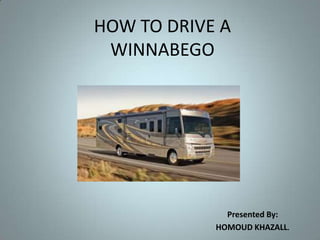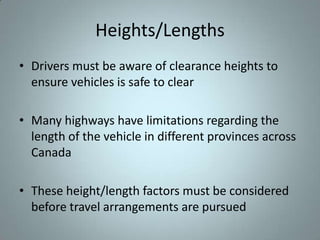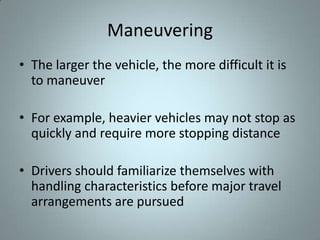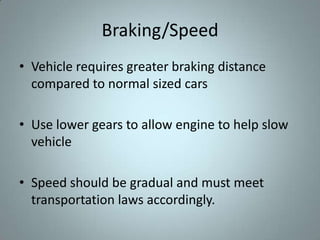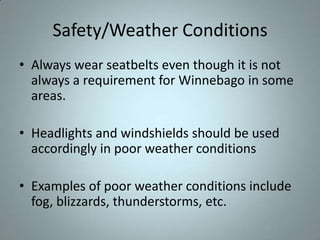Homoud pastime
- 1. HOW TO DRIVE A WINNABEGO Presented By: HOMOUD KHAZALL.
- 2. Heights/Lengths ŌĆó Drivers must be aware of clearance heights to ensure vehicles is safe to clear ŌĆó Many highways have limitations regarding the length of the vehicle in different provinces across Canada ŌĆó These height/length factors must be considered before travel arrangements are pursued
- 3. Maneuvering ŌĆó The larger the vehicle, the more difficult it is to maneuver ŌĆó For example, heavier vehicles may not stop as quickly and require more stopping distance ŌĆó Drivers should familiarize themselves with handling characteristics before major travel arrangements are pursued
- 4. Braking/Speed ŌĆó Vehicle requires greater braking distance compared to normal sized cars ŌĆó Use lower gears to allow engine to help slow vehicle ŌĆó Speed should be gradual and must meet transportation laws accordingly.
- 5. Safety/Weather Conditions ŌĆó Always wear seatbelts even though it is not always a requirement for Winnebago in some areas. ŌĆó Headlights and windshields should be used accordingly in poor weather conditions ŌĆó Examples of poor weather conditions include fog, blizzards, thunderstorms, etc.

